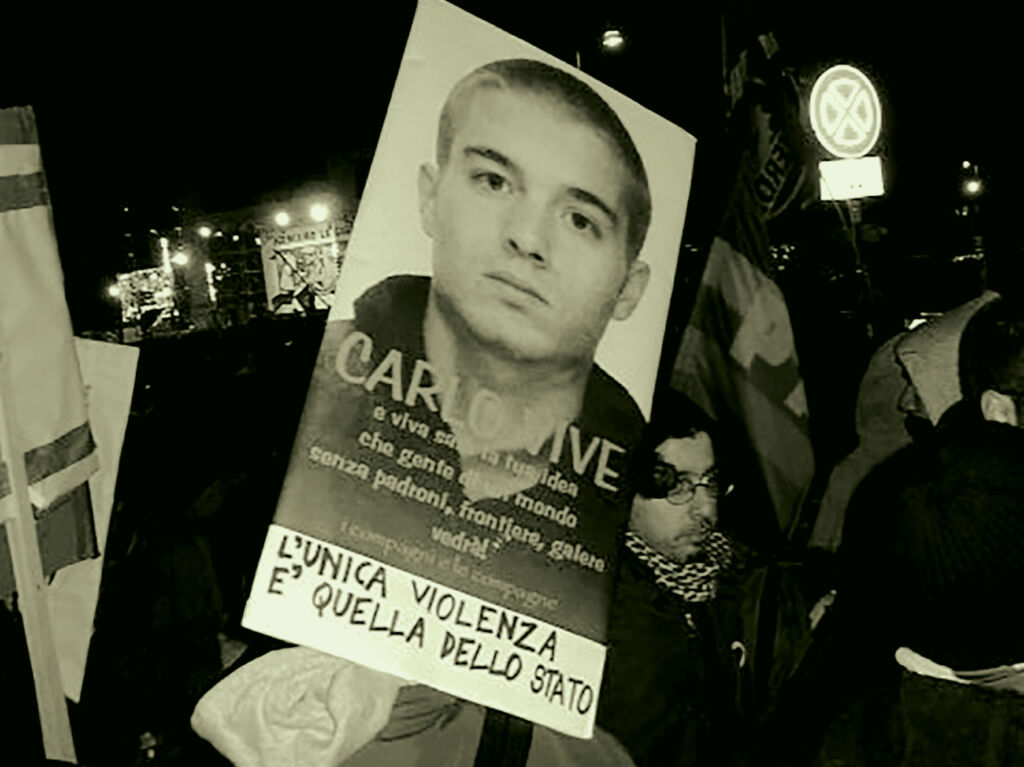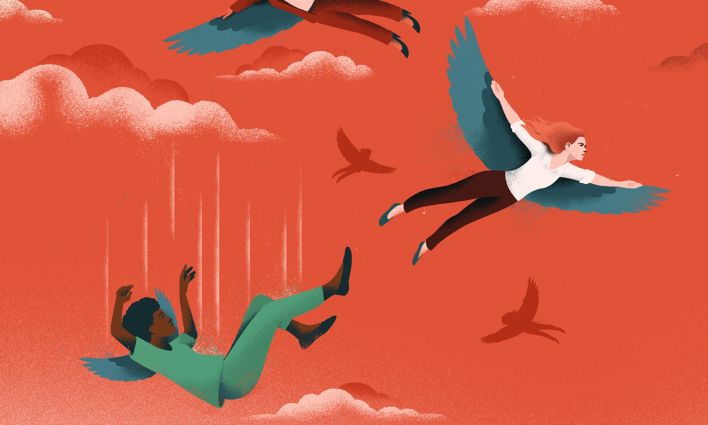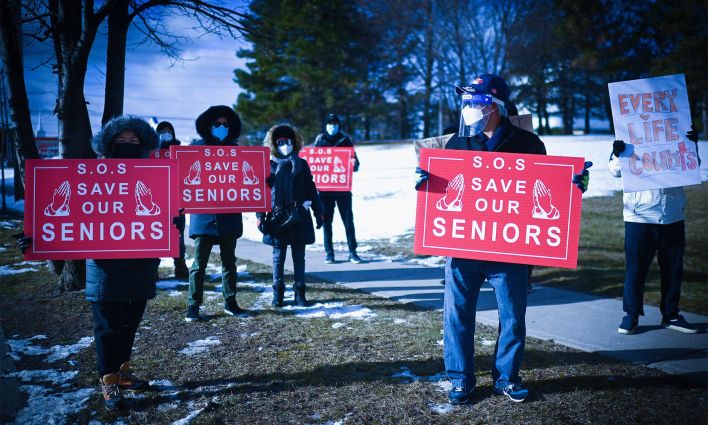When I think about September 11, I think about two young men: Chris* and Carlo. One of them I grew up with. The other, I’ve never met but have become intimately familiar with his untimely death. Both were killed in 2001, an ocean apart—one in Ontario, one in Genoa, Italy.
Chris grew up in Southern Ontario as neoliberalism was taking hold. He worked his way through school during the Harris years as teachers walked the picket lines, as classes got bigger, as kids like Chris got lost in the noise. He came of age in a city that once offered an array of secure blue collar jobs—now offshored through NAFTA—leaving precarious and low-wage employment in their wake.
Carlo was a 23-year old student who was killed by Italian police officer Mario Placanica at a G8 protest in July 2001 in Genoa’s Piazza Alimonda. The G8 protests in Genoa were part of a growing international anti-globalization movement. Building on the energy of the Battle of Seattle in 1999 and the anti-FTAA protests in Quebec City in 2001, the Genoa protests brought together a vast array of dissenters from religious groups to environmentalists. On the first day of the meeting, police, unprovoked, teargassed a peaceful march, resulting in a three-hour standoff throughout which they continued to teargas the crowd. In the chaos, Carlo Giuliani walked toward a police vehicle carrying a fire extinguisher. He was shot before the armoured vehicle drove over his body. A doctor in the crowd was unable to resuscitate Carlo after police left.
There’s a quiet resignation I feel when I think about how big $92B is compared to how small the community I grew up in is... And instead of building up kids in [communities like mine], we pumped $92B into a global war on terror in the first 10 years alone.
Why do I think of these two young men when I think about September 11?
The night before the towers fell, I received a call telling me that Chris had been murdered. We’d eventually learn he had been killed by a friend for money. In the 10 years following September 11, Canada spent $92 billion on national security, including a near doubling of the military budget. There’s a quiet resignation I feel when I think about how big $92 billion is compared to how small the community I grew up in is, and how many communities like mine there are across the country that need investment, whose kids need investment. And instead of building up our kids, we pumped $92 billion into a global war on terror in the first 10 years alone (getting an accurate picture of the total spending for the past two decades is trickier).
Carlo’s death, by contrast, is an important reminder that, while 9/11 opened a floodgate for increased surveillance by and militarization of police units, the use of disproportionate force against certain groups predates the 2001 terror attack. His death follows the use of disproportionate force in Canada at the FTAA protests in April 2001, the killing of Dudley George at the 1995 Ipperwash Crisis and the use of over 400 RCMP officers and 77,000 rounds of live ammunition in the 1995 Gustafsen Lake Standoff against 18 Ts’Peten Defenders.
In 2004, I had the privilege of traveling to Genoa to meet some of Carlo’s loved ones and to hear firsthand not only about the day that Carlo was killed but the aftermath of his death. His friends paid the €30 fare for a cab to take me from the train station to Piazza Alimonda, to show me where Carlo had fallen and the shrine that still stood in his honour. When I offered to repay them, they shook their heads. They didn’t want money. What they wanted was for me to share Carlo’s story, so he wouldn’t be forgotten.
In the hours and days that followed Carlo’s death, Piazza Alimonda’s signs were vandalized to read “Piazza Giuliani” and a new phrase was adopted by the anti-globalization movement: Por todos nuestros muertos, ni un minuto de silencio. Toda una vida de lucha. To honor our dead, never a minute of silence. We will live lives of struggle.
While I am honoured to share Carlo’s story and have carried it with me all these years, I think Chris’ story matters just as much. The difference is that there are no murals of Chris anywhere. No one wrote a book about a year without Chris. He was just gone. For every Carlo, there are hundreds of Chrises—young people whose lives are cruelly and irrevocably shaped by neoliberal policies and austere cuts.
Now that we have been blessed with two decades of hindsight, it is my sincere hope that we can assess not only the damage that twenty years of anti-terrorism legislation has wrought at home and abroad, but consider how redirecting federal funds to military expenditures stunts the potential of our communities to succeed. No one should be shot at a protest. And no one should be killed when their life is just beginning. Both of these deaths were entirely preventable.
For Carlo and for Chris, never a moment of silence.

*name has been changed.
Header photo credit: Simone Ramella








